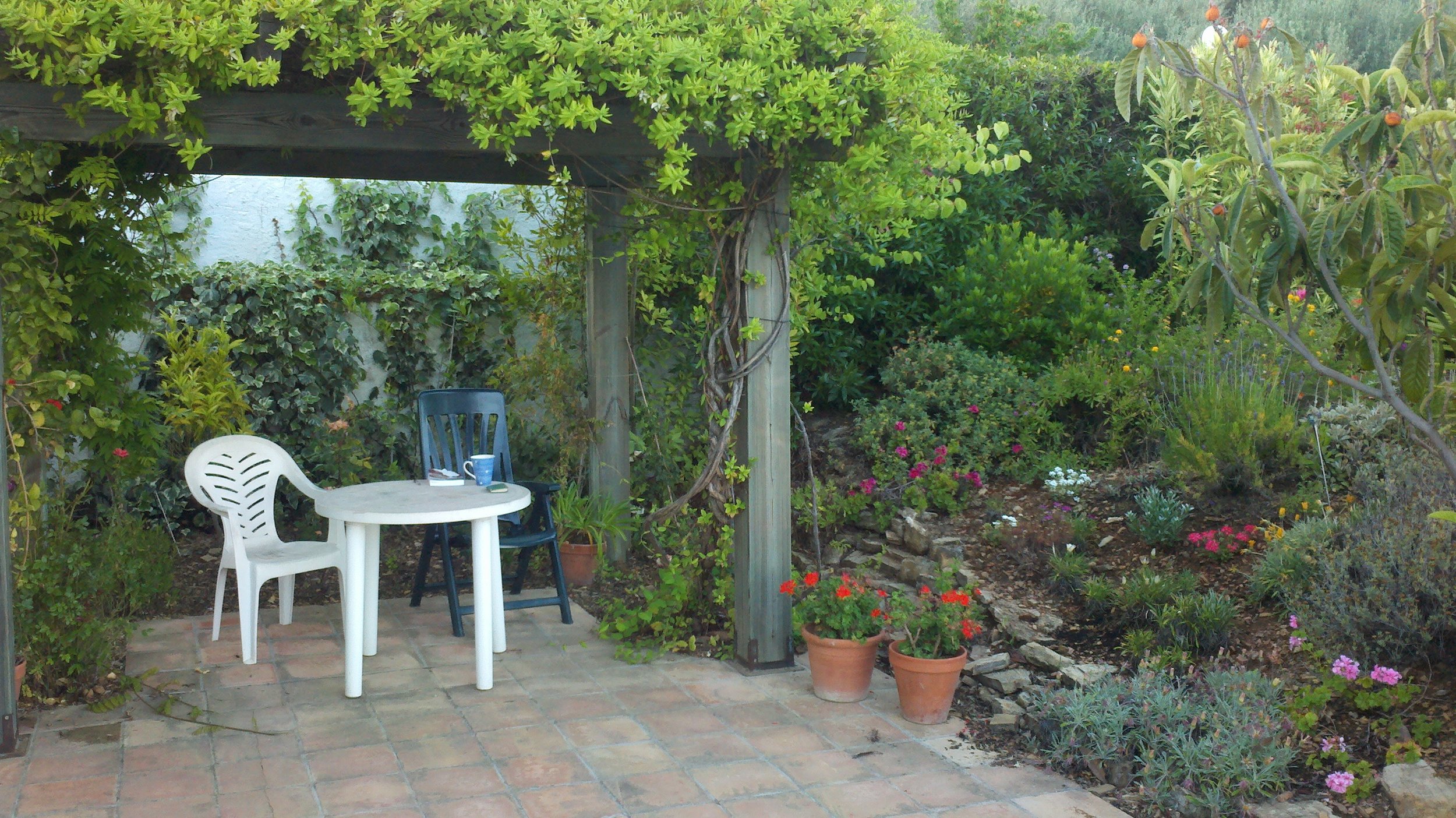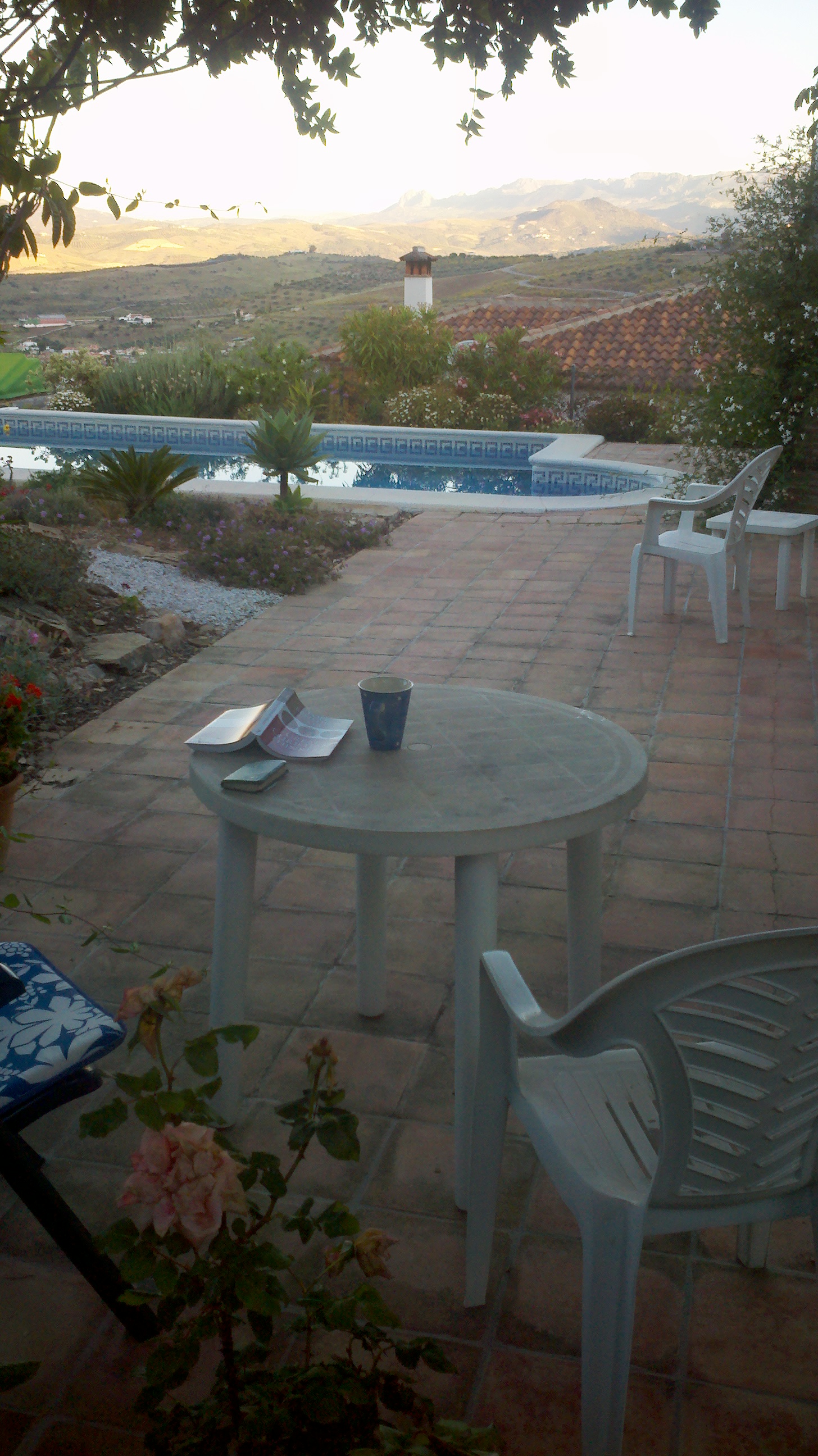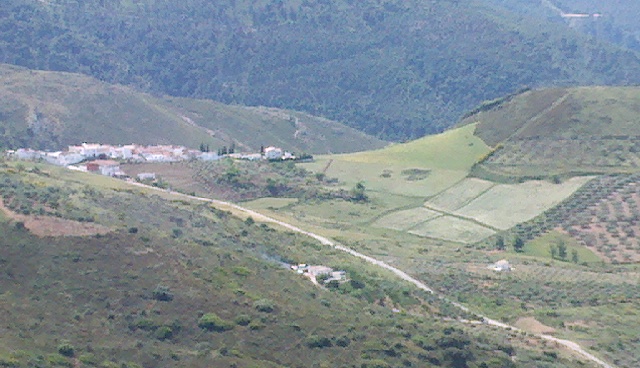 How do you pray the Liturgy of the Hours when the books are too heavy to put into your suitcase and your normal routine is disrupted? I have just returned from a visit to England and Spain to see my family. For various reasons I haven't been able to leave the US for a couple of years. I couldn't wait to see everyone again and I had a great time. Lots of time spent with family and friends, walks in the countryside in both countries, visits to English gardens and even a pilgrimage site in North Wales. There was plenty to report on and I will be writing about it in the coming weeks.
First though, how to keep going with the prayer routine while travelling? The quickest answer is to use your smart phone and access the Office online. This was too expensive for me when going to Europe, so I had to go low-tech. Furthermore, not everyone has a smart phone even in the US, so for many this is never an option. The books for the Divine Office are bulky for travel - the time I was away was the transition from volume II to volume III in my three volume briviary, so I would need both. And if you are as careless as I am there is always the worry about the expense of replacing them if I lose them. (I can lose anything that isn't attached to me - I left the first book of Hours given to me by my spiritual director on a plane.) I could have taken the Shorter Morning and Evening Prayer, but this would still leave me with the problem of what to do for the minor Offices.
How do you pray the Liturgy of the Hours when the books are too heavy to put into your suitcase and your normal routine is disrupted? I have just returned from a visit to England and Spain to see my family. For various reasons I haven't been able to leave the US for a couple of years. I couldn't wait to see everyone again and I had a great time. Lots of time spent with family and friends, walks in the countryside in both countries, visits to English gardens and even a pilgrimage site in North Wales. There was plenty to report on and I will be writing about it in the coming weeks.
First though, how to keep going with the prayer routine while travelling? The quickest answer is to use your smart phone and access the Office online. This was too expensive for me when going to Europe, so I had to go low-tech. Furthermore, not everyone has a smart phone even in the US, so for many this is never an option. The books for the Divine Office are bulky for travel - the time I was away was the transition from volume II to volume III in my three volume briviary, so I would need both. And if you are as careless as I am there is always the worry about the expense of replacing them if I lose them. (I can lose anything that isn't attached to me - I left the first book of Hours given to me by my spiritual director on a plane.) I could have taken the Shorter Morning and Evening Prayer, but this would still leave me with the problem of what to do for the minor Offices.
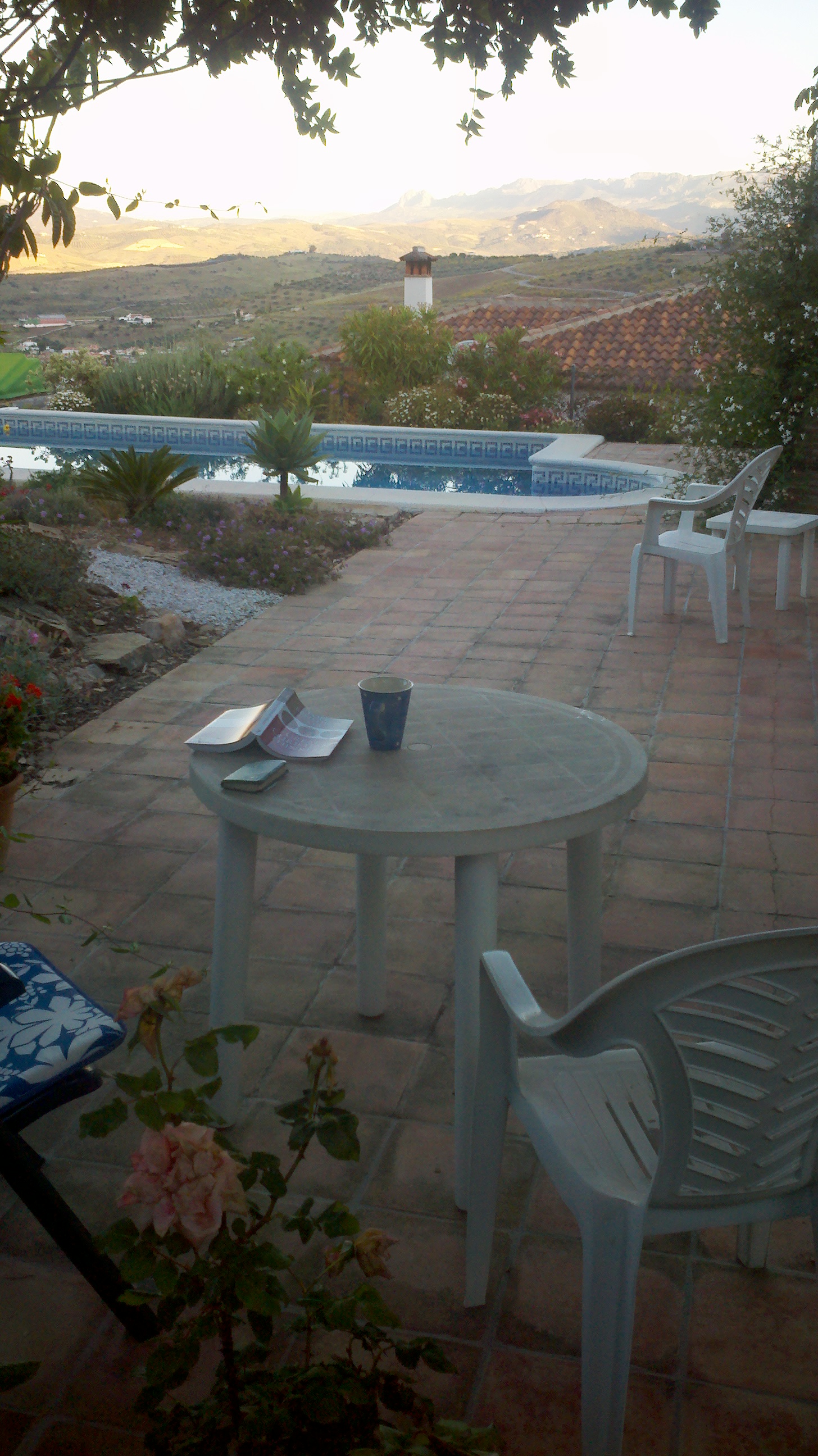 Here's what I did. In his book Earthen Vessels published by Ignatius Press, Gabriel Bunge OSB explains that the essence of the Liturgy of the Hours is marking the Hours and saying the psalms. As a lay person I am not bound to the weekly cycle of the psalms as set out by St Benedict, or the four-weekly cycle that secular priests are bound to. I can devise any cycle of the psalms that suits me and pray them at the hours and this still constitutes liturgical prayer and if I follow it I will still be praying with the Church. I happened to have with me a tiny edition of the New Testament with the Psalms so I made us of this. At each Hour I read the next psalm (or two or even three if they were short) in the order that they come in the bible, 1- 150. I did start with Psalm 94 each day, the invitatory psalm, and where I knew there were penitential psalms (eg psalm 50), I tried to save them for Friday. At the Hours of Lauds, Vespers and Compline, I delved into the gospels and sang the Benedictus, the Magnifcat and the Nunc Dimittis all from Luke. I have included some photos of my little chapel on the patio at my parents' place in Spain. They have a great view and their garden is lovely, so the motivation to sit out their with a pot of coffee and the psalms was great!
Here's what I did. In his book Earthen Vessels published by Ignatius Press, Gabriel Bunge OSB explains that the essence of the Liturgy of the Hours is marking the Hours and saying the psalms. As a lay person I am not bound to the weekly cycle of the psalms as set out by St Benedict, or the four-weekly cycle that secular priests are bound to. I can devise any cycle of the psalms that suits me and pray them at the hours and this still constitutes liturgical prayer and if I follow it I will still be praying with the Church. I happened to have with me a tiny edition of the New Testament with the Psalms so I made us of this. At each Hour I read the next psalm (or two or even three if they were short) in the order that they come in the bible, 1- 150. I did start with Psalm 94 each day, the invitatory psalm, and where I knew there were penitential psalms (eg psalm 50), I tried to save them for Friday. At the Hours of Lauds, Vespers and Compline, I delved into the gospels and sang the Benedictus, the Magnifcat and the Nunc Dimittis all from Luke. I have included some photos of my little chapel on the patio at my parents' place in Spain. They have a great view and their garden is lovely, so the motivation to sit out their with a pot of coffee and the psalms was great!
We have been developing psalm tones at for English for use at Thomas More College. These are designed so that any tone can be applied to any psalm. I apply the inflexions in the melody to the natural emphases in the text. This meant that even with just two or three simple tones sticking in my memory, I could sing the whole Office if I wanted to. This is did if I thought I was out of earshot. I am not yet at the level of evangelical fervour to be able to sing the psalms solo in a busy 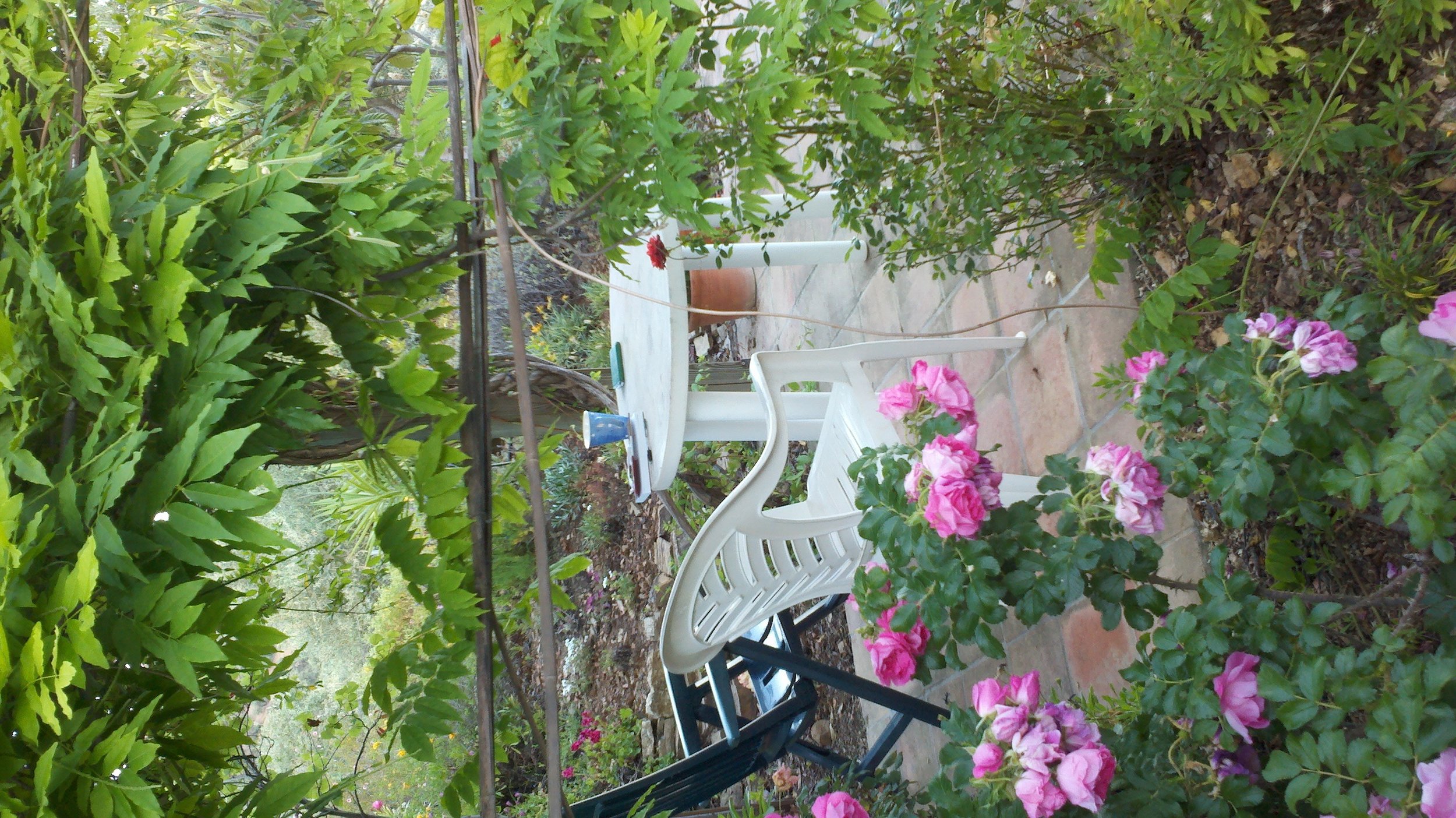 shopping mall (although I am getting there - I am much less self conscious about singing in front of others than I used to be). The great thing about working from such a small book is that I could fit it in my back pocket and during the course of the day, wherever I happened to be, could pull it out and read the next psalm.
shopping mall (although I am getting there - I am much less self conscious about singing in front of others than I used to be). The great thing about working from such a small book is that I could fit it in my back pocket and during the course of the day, wherever I happened to be, could pull it out and read the next psalm.
For the Vigils (the Office of Readings) I would always read a passage from the New Testament. The Office of Readings also includes each day a reading from the works of the Church Fathers. By chance, for my holiday reading I had with me the collected addresses (70 0f them) by Pope Benedict XVI on the Church Fathers called Great Christian Thinkers, From the Early Church through to the Middle Ages and so I read one of these each day. Incidentally this is a wonderful survey of the mystical and theological writings of the great figures of the Church. If anyone is interested in a guide for reading the Fathers, this is the place to start.
I was also in a position to supplement this with mental prayer and so each day did in addition to this some lection divina. I did a short series of articles on how I was instructed to pratise this ancient form of prayer, here.
If I went for a walk in the hills (we about 45 minutes from Malaga in southern Spain) then my little bible was so small that I could fit it in my back pocket and at a convenient place pull it out and sing the psalms to the plants and any passing mountain deer. I picked a rock among the wild flowers to sit on...
in position where there was a pleasant view of the of Spanish farmland, and began.
Glory be to God for dappled things...!

